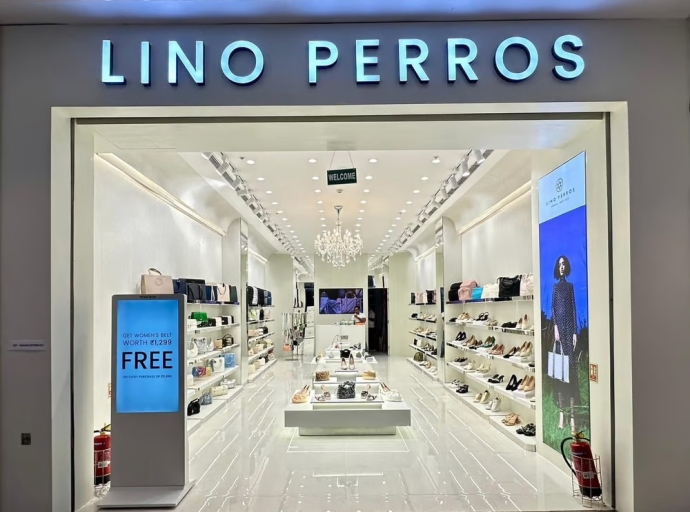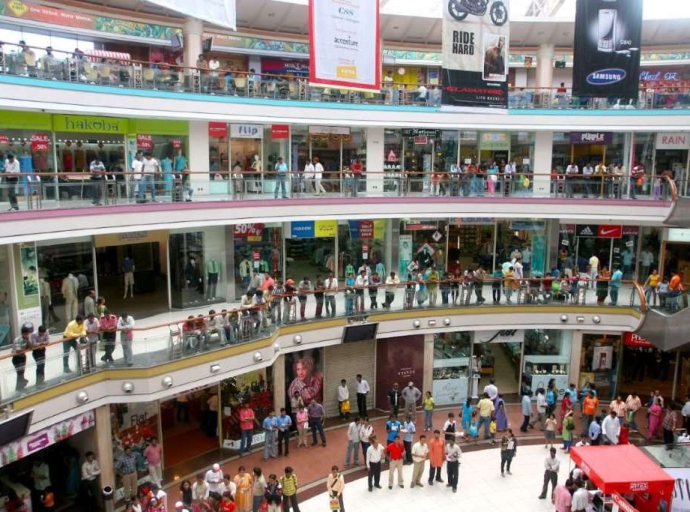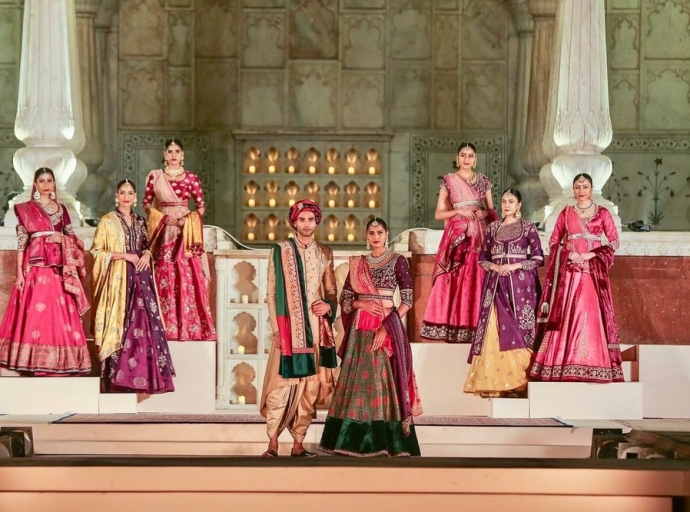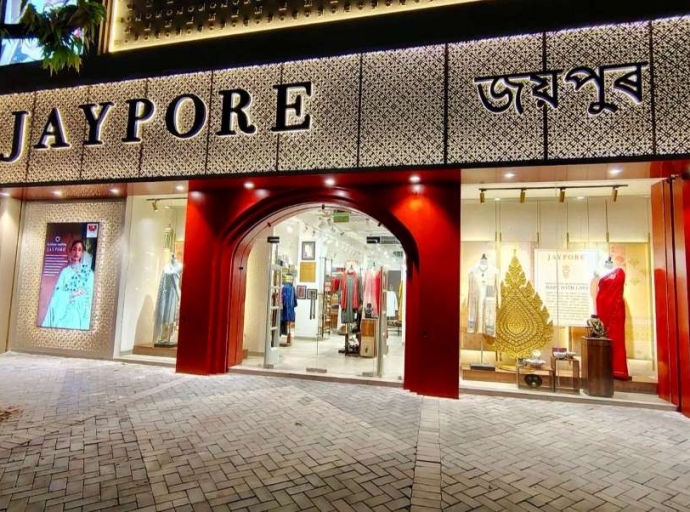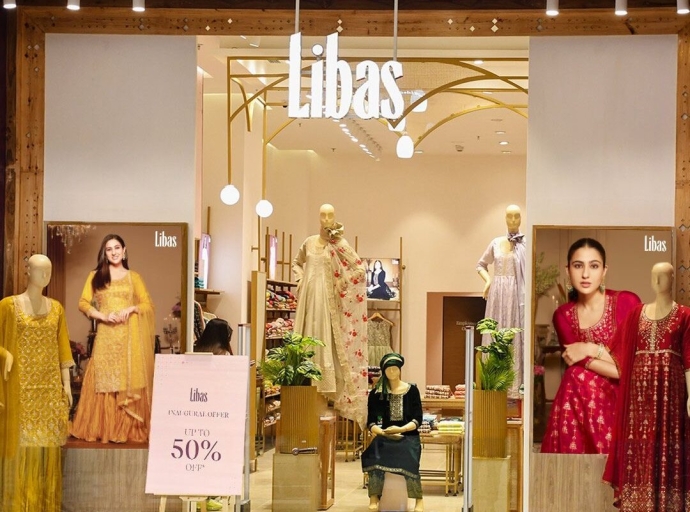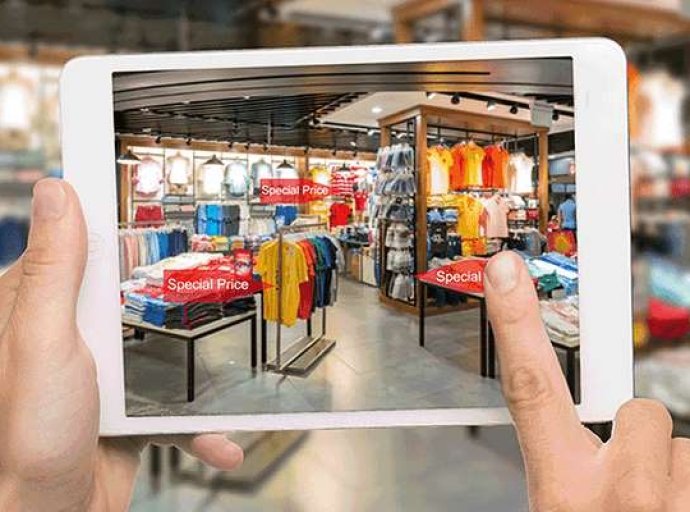Japanese fashion retailer Uniqlo has introduced the UTme! India Art Project to showcase designs from emerging Indian artists. This marks the first time Uniqlo has collaborated with Indian artists to create unique designs for their UTme! T-shirts and tote bags. The exclusive collection will be available at Uniqlo’s Ambience Mall Vasant Kunj store in New Delhi
Collaborating with talented local artists on this collection helps the retailer further its commitment to the Indian community and celebrate its diversity, says Nidhi Rastogi, Marketing Director, Uniqlo India.
UTme! offers customers an opportunity to design their own Uniqlo T-shirts by selecting from a range of stickers available at the UTme! Machine. The designs are printed on-site, allowing customers to personalise their T-shirts and tote bags in just 20 minutes. Additionally, the sotre also sells pre-printed T-shirts featuring the new designs.
Uniqlo entered the Indian market in September 2019, opening a flagship store in New Delhi's Ambience Mall, Vasant Kunj. It now operates eight stores in Delhi NCR, two in Mumbai, and one each in Chandigarh, Lucknow, and Zirakpur. The brand plans to open six to eight more stores in Mumbai and Pune over the next two years and is negotiating with several major malls in these cities.
All Stories
Amid growing protests from retail trade bodies over deep discounts offered by major e-commerce players such as Amazon and Flipkart, all leading online platforms have announced their biggest sales of the year.
Led by the Confederation of All India Traders (CAIT), trade bodies have called these deep discounts unethical and urged the government to intervene, accusing e-commerce giants of undermining the retail ecosystem.
Although aimed at attracting consumers, these discounts blatantly violate rules governing fair trade and pricing, says BC Bhartia, National President, CAIT. Heavy discounting distorts market competition and creates an uneven playing field, especially for smaller retailers and businesses unable to compete with the deep price cuts offered by large e-commerce companies, he adds.
Despite these concerns, major players in the e-commerce sector continue to offer significant price cuts to draw in consumers during this crucial shopping period. Saurabh Srivastava, Vice President – Categories, Amazon India, informs, this year, over 1.6 million sellers and brand partners are ready to present never-before-seen offers across categories such as fashion, health, beauty, electronics and groceries.
On being asked about concerns raised by small businesses over these discounts, Srivastava states, Amazon has always focused on enabling sellers, especially small and medium businesses, women entrepreneurs, artisans, and weavers. The e-commerce company helps them digitise and reach customers across the country. It remains supports sellers by facilitating their exports, he adds.
However, aggressive pricing tactics of e-commerce giants continue to damage their businesses, argue small traders. Steep discounts make it impossible for traditional retailers to compete, especially during the festive season when small businesses would typically see an increase in sales, they state.
While customers eagerly await these sales, the conflict between large e-commerce platforms and small retailers highlights the ongoing tension within India's retail landscape as deep discounting strategies remain a contentious issue.
Leading handbags and footwear brand, Lino Perros has made its offline debut with the launch of its first flagship store in Gurgaon. Located on the first floor of Airia Mall, the new store showcases the brand’s latest collection of handbags and footwear.
With nearly 25 years of experience in the fashion industry, Lino Perros plans to expand its operations. Featuring a palette of soft whites and peach tones, the new store’s interiors create a serene and balanced atmosphere. The gentle hues of the store not only add to the aesthetics but also highlight our products, enhancing the overall shopping experience, says Natasha Dua, Director.
Founded in 1999 by Sanjay Dua and Natasha Dua, Lino Perros boasts over 2,000 points of sale across 300 cities in India and is available on major e-commerce platforms including Flipkart, Amazon, and Myntra.
A recent report by JLL India paints a picture of a retail sector on steroids. Titled ‘India to add 45 mn. sq. ft of retail space in 5 Years, surpassing last decade's growth’, the report predicts a construction frenzy with a projected addition of a staggering 45 million sq. ft. of retail space by 2028. This growth, significantly outpacing the previous decade's 38 million sq. ft., indicates a booming market hungry for new shopping experiences.
Demand outpaces supply
The demand for retail space is being fueled by a combination of factors. India's growing economy, rising consumer confidence, and increasing brand presence are all contributing to a retail boom. JLL estimates that the current operational retail space in shopping malls across the top seven cities (Delhi NCR, Mumbai, Bengaluru, Hyderabad, Pune, Kolkata, and Chennai) stands at approximately 89 million sq. ft. However, the projected influx of 45 million sq. ft. suggests a potential gap between demand and supply in the short term. This presents an opportunity for developers to capitalize on the growing demand.
Table: Projected retail space growth by city (2024-28)
| Delhi NCR | 18.5 |
| Bengaluru | 12.2 |
| Mumbai | 7.8 |
| Hyderabad | 3.1 |
| Other Cities (Combined) | 3.4 |
Luxury, premium, and value, catering to diverse needs
The JLL report also indicates a trend towards diversification within the retail space segment. Malls are increasingly catering to different consumer segments with a mix of luxury, premium, and value brands. For example, Delhi’s DLF Emporio is a prime example of a luxury mall, it houses high-end designer boutiques, attracting a clientele with a taste for the finer things. Pune’s Phoenix Marketcity mall offers a diverse mix of premium and value brands, catering to a wider range of shoppers. This diversification reflects the evolving Indian consumer who is no longer a monolithic entity.
Malls vs high street, a co-existing future
The rise of malls doesn't necessarily spell doom for traditional high-street shopping. Experts believe that both formats can co-exist and thrive. Malls offer a curated shopping experience with a controlled environment, while high streets provide a more personal touch and a wider variety of local stores.
The JLL report suggests metros will be major contributors to the upcoming retail space expansion, accounting for a significant portion of the projected 45 million sq. ft. However, tier-II and tier-III cities are also expected to witness healthy growth as brands expand their reach and consumer spending power increases in these regions.
The report also highlights the fashion and lifestyle sector as a key driver of growth in the retail space. The increasing disposable income of young Indians is fueling a demand for trendy clothing, footwear, and accessories. This trend is expected to continue, with other sectors like electronics and homeware also witnessing significant growth.
JLL's report paints a picture of a vibrant and evolving retail landscape in India. With a surge in retail space, a focus on diverse experiences, and city-wise growth, the future of Indian retail appears bright. This retail renaissance presents exciting opportunities for brands, developers, and investors alike, catering to the ever-evolving needs of the Indian consumer.
The Retailers Association of India (RAI) reported a modest 2 per cent growth in retail business for August 2024 compared to the same period last year. Despite positive economic conditions, many retailers recorded negative growth on a like-for-like basis, and double-digit growth remains elusive.
Kumar Rajagopalan, CEO of RAI, emphasized that retail performance in August was weak, with many retailers experiencing negative growth. However, he expressed optimism that the upcoming festive season could lead to positive growth, given the overall positive economic outlook.
Regionally, North and South India posted 3 per cent growth each, while East and West India lagged at 1 per cent. Among retail categories, food and grocery outperformed others with a 7 per cent rise, followed by jewellery at 5 per cent.
RAI has urged stakeholders to adopt strategies that boost consumer demand, paving the way for long-term growth in the sector.
Subdued consumption due to prolonged heat waves, election and inflation led to a Rs 22.72 crore consolidated net loss for retail chain Shoppers Stop during the first quarter of this fiscal ended June 2024. The retailer had recorded a net profit of Rs 14.49 crore in the corresponding quarter last year.
The retail chain’s consolidated revenue from operations increased to Rs 1,069.31 crore during the quarter from to Rs 993.61 crore in the same period last year. Its total expenses rose to Rs 1,104.51 crore from Rs 980.92 crore in the previous fiscal year.
To recover from these losses, the retail company plans to enhance focus on premiumisation, increase investment in marketing and set up high-end coffee shops in stores to enhance customers’ shopping experience, says Kavindra Mishra, Managing Director, Shoppers Stop.
The retailer also plans close a few unviable stores and rationalise costs during the year, adds Mishra.
The Fashion Design Council of India (FDCI) plans to organise the upcoming FDCI Manifest Wedding Weekend in partnership with RPSG Lifestyle Media.
The two-day event will be held from Aug 03-04, 2024 at the Taj Palace in New Delhi. It will be attended by some of India’s top couturiers, jewelers and ancillary service providers. Featuring India’s top couturiers, jewelers and anciliary service providers the event will tap into the booming Indian wedding and luxury fashion market, thus becoming a premier platform for acquiring festive couture, red-carpet creations and exquisite jewelry, says Sunil Sethi, Chairman, FDCI.
Avarna Jain, Chairperson, RPSG Lifestyle Media, adds, the FDCI Manifest Wedding Weekend will not only bring together India’s top couturiers and celebrated jewlers for a bespoke two-day showcase but also set trends for the season.
Following the uniqe ramp-to-retail concept, the FDCI's Wedding Weekend provides brides and grooms-to-be with the opportunity to acquire the latest wedding collections showcased during the event.
A renowned name in India’s artisanal and handcrafted retail industry, Jaypore has penetrated the Northeast market by opening its first store in Guwahati.
Known for its curated collections of artisanal apparel, home décor, and jewelry, Jaypore’s expansion into the Northeast marks an important milestone in the brand’s nationwide growth.
The new store offers a variety of unique, handcrafted items, each meticulously created by skilled artisans from various regions across India. It features an array of beautifully handcrafted products, from elegant apparel to intricately designed jewelry and home décor items. Each piece reflects a deep commitment to preserving India’s traditional craftsmanship while embracing modern design sensibilities.
Known for championing India’s cultural legacy, Jaypore aims to offer a more personalised and immersive shopping experience at its Guwahati location. The store's thoughtfully designed interior not only highlights the intricate craftsmanship of its products but also tells the stories of the artisans behind them. Each item on display is a testament to India’s vibrant and diverse heritage, making the store a destination for those who want to connect with the country’s cultural roots.
The Guwahati store represents a key step in Jaypore’s mission to make artisanal products accessible across India. This new venture not only makes the brand’s products more accessible to a wider audience but also provides a platform for local artisans to showcase their crafts on a national scale.
Gen Z-focused apparel brand Bonkers Corner has teamed up with Japanese brand Hello Kitty to launch a unique womenswear collection.
A part of a broader strategy by the House of Sanrio and its licensing agency, Dream Theatre, this collection will help expand Hello Kitty’s presence in India significantly.
The Bonkers Corner collection showcases Hello Kitty graphics on various garments, including skirts, oversized t-shirts, crop tops, bottoms, and caps.
Launching at Bonkers Corner’s flagship store in Lower Parel, Mumbai, the collection is priced between Rs 299 and Rs 1,099 and caters to Hello Kitty enthusiasts of all ages.
Shubham Gupta, Founder, Bonkers Corner says, a global icon, Hello Kitty embodies positivity and fun. The collaboration between these two brands enables Hello Kitty fans to experience the wacky and wonderful world of Bonkers Corner. The collaboration leads to creative explosion resulting in some crazy but awesome creations.
Set to go live on May 31, the 20th edition of Myntra’s flagship End of Reason Sale (EORS) is expected to attract over 20 million visitors to the e-commerce platform,
The sale is anticipated to attract 1.35 million new customers who will witness over 3 million styles from more than 8,800 brands. The number of brands participating in the sale is expected to rise by 47 per cent while the trend-first selection will increase by 50 per cent increase compared to last year.
Ahead of the sale, Myntra has onboarded several new brands, including Victoria’s Secret, Dash & Dot, Aeropostale, Coach Watches, Qissa, Kate Spade Fragrances, New Balance High Heats, and Staze Cosmetics.
The e-commerce company will also showcase new collections from homegrown direct-to-consumer (D2C) brands catering to both mass premium and premium segments including Rare Rabbit, Uptownie, Damensch, Urban Monkey, Snitch, and Powerlook.
Backed by Tiger Global and Chiratae Ventures, Myntra will engage celebrities such as Shah Rukh Khan, Karan Johar, and Kiara Advani, along with over 150 influencers across the app and social media platforms for promotional activities.
To meet the rising demand, Myntra also plans to scale up its supply chain operations. This includes providing income-augmenting opportunities for thousands of kirana partners under the company’s MENSA (Myntra’s Extended Network for Service Augmentation) program, which primarily handles last-mile delivery operations for the e-commerce platform.
Sidhant Keshwani, Founder and CEO, Libas, says, the D2C-first women’s fast fashion ethnic brand has ambitious plans to expand its physical presence across India. Over the next 18 months, Libas aims to open around 100 to 150 stores, targeting both major metros and key smaller state capitals, such as Chandigarh and Pune.
In September, Libas will open a store in Omaxe Mall in Delhi followed by another in Ghaziabad. It also plans to open a flagship store in Karol Bagh in early October, with additional stores planned for Bengaluru and Lucknow. By the end of the year, the brand will open stores in Pune, Mumbai, Hyderabad, and more locations in Bengaluru. Beyond these initial launches, Libas plans to continue expanding its retail footprint across India in the coming year and a half.
Founded in 2004, the Delhi-based Libas specialises in modern ethnic wear, offering a range of apparel that blends contemporary style with traditional elegance. With a focus on quality and affordability, Libas caters to women of all ages, from loungewear to bridal lehengas. The brand has effectively leveraged digital platforms and D2C strategies to broaden its customer base, experiencing significant growth in recent years.
Libas’s growth has been fueled by its expanding product line, robust online presence, and strategic digital marketing efforts. In FY2025, The brand’s turnover increased to Rs 500 crore from Rs 300 crore in FY 2022. The brand’s omnichannel approach helped it grow, with around 18 stores currently operational. From September onward, Libas plans to launch three to four new stores every month.
The brand’s flagship store in Lajpat Nagar offers a wide range of products, from casual nightwear to bridal outfits. It also features an in-house stylist to assist customers, with the option for personalized consultations with a celebrity stylist by appointment. Additionally, the store offers a unique service where shoppers can book an entire day for personalised wedding and trousseau shopping.
Expanding its retail presence in Gujarat, leading sports and athleisure footwear brand, Campus has opened 10th store in the Vadodara. The brand currently operates 254 stores across India.
Most of the brand’s stores are located in Uttar Pradesh with the state having 52 Campus EBOs followed by Delhi with 32 stores.
The recent store opening in Vadodara is part of the brand’s strategic expansion to make its products more accessible to a broader audience. The company's focus on quality, innovation, and customer satisfaction has been the key to its growth and success in the competitive footwear market.
Founded in 2005 by Hari Krishan Agarwal, Campus offers a wide range of products including running shoes, walking shoes, casual shoes, sports shoes, sneakers, casual sandals and floaters, flip flops, and slides for men, women, and kids. Some of the notable collections include The Dark Knight, Campus Ogs, Clogs, Nitrofly, Air Capsule, and Nitro Boost.
The new ‘Refinish Service’ launched by Ekart enables it address the challenges of returns management in the fashion and lifestyle sector.
The service allows the retailer to refurbish over 90 per cent of the returned inventory, thus helping brands mitigate losses and maximise revenue potential.
Besides, targeting direct-to-consumer (D2C), e-commerce, and retail players in the fashion and lifestyle segments, the refinish service also caters to other industries like footwear, handbags, accessories, and the home and decor, encompassing products such as curtains, bed sheets, blankets, etc.
With a combined processing capacity of 55,000 units daily, Ekart leverages the best-in-class machinery and energy-conserving technologies for the service. The refinishing process at Ekart's facilities involves rigorous quality checks, stain removal, box replacement, ironing, stitching (if required), and final quality control to ensure the finesse of the refurbished products.
Mani Bhushan, Chief Business Officer, Ekart, says, by harnessing cutting-edge technology and sustainable practices, the refinishing service empowers brands to optimise their supply chains and drive a positive change on a broader scale. The service sets a new standard for returns management, thus demonstrating the retailer’s commitment to innovation, efficiency and sustainability.”
An operator of the Refinish centers across major demand clusters in the country, Ekart facilitates swift return processing and reduces transport costs for brands. These regions include Gurgaon, Mumbai, Bangalore, Kolkata, etc.
The facilities utilise best-in-class machinery, including up-steam tables and steam vacuum tables, ensuring thorough and efficient processing of returned inventory and industry-leading foam finishers that ensure quality.



